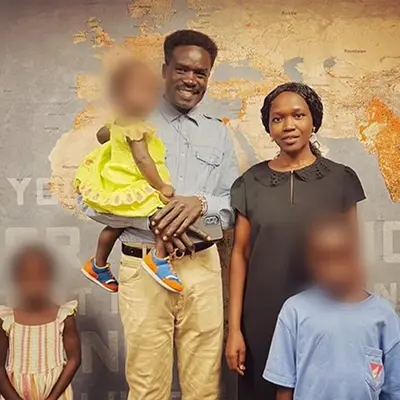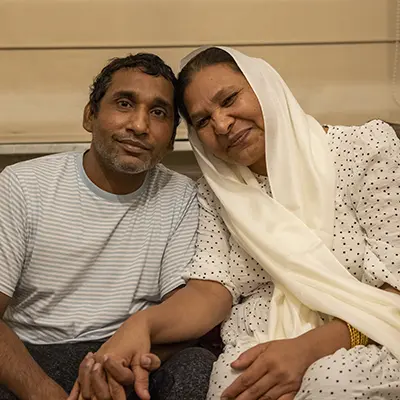Faith representatives from Christian and Muslim communities take legal action against government-imposed closure of places of worship
Case mirrors global trend as Covid-19 restrictions shown to discriminate against people of faith
KAMPALA (05 AUGUST 2021) – A church in Kampala and a representative from the Muslim community have commenced legal action challenging the Ugandan government’s ban on public worship after new national lockdown measures were announced on Friday. Under new regulations, malls, arcades, and business centers may open, with public transport functioning at 50% capacity. Yet, people are completely prohibited from attending a place of worship.
“As a woman of faith, it’s been difficult to see my community deprived of access to public worship at a time when we need it most. At this hard moment for our country, the government must remember that we don’t only have physical needs, but spiritual needs, too. I’m glad to stand with my church, with support from ADF International, in challenging this disproportionate, unnecessary, and draconian restriction on freedom of worship,” said Agnes Namaganda, a member of the Christian fellowship supporting the challenge.
“For people of faith, participating in public worship is as essential as taking food and water. Under the current regulations, those who want to shop may visit the mall, and those who want to eat out may go to a restaurant; yet there is no place of worship open for those who want to practice their religion. Why are people of faith being treated as more contagious than others? Of course, it is vitally important to keep our communities safe at this time. This can and must be done while also upholding the right to gather for worship,” added Imaam Bbaale Muhammed, who has also joined the legal challenge against the government’s worship ban.
Discriminatory measures in place throughout the pandemic
The recent restrictions on worship, announced on July 30th, are due to last at least 60 days, after which a new review will begin. The restrictions follow a year of what the litigants claim to have been discriminatory treatment against faith communities.
“Freedom of religion and belief is a foundational human right. Freedom to manifest one’s faith in public worship is an essential part of this right, protected by Ugandan law and international treaties. This right should be limited only to the extent that it is necessary for a legitimate, proportionate, and non-discriminatory reason. In multiple instances across Europe, in the US, and in Latin America, we’ve seen similar blanket bans on public worship be ruled unlawful,” said Sean Nelson, Legal Counsel, Global Religious Freedom, for ADF International.
Following an easing of previous lockdown measures in June 2020, places of worship were not allowed to reopen with other similar public places, but had to wait a further two months until further consultations could take place between the Ministry of Health and the Inter-Religious Council.
When the doors of churches, mosques, synagogues, and other religious buildings were finally cleared to open in August 2020, they had to adhere to government-enforced Standard Operating Procedures of far greater difficulty than regular public places or places of commerce. Faith groups were required to have a team of trained medical personnel attend every worship service, and security guards to ensure that worshippers remained adequately spaced when in line for having their temperature taken upon entry.
“People of faith are no more contagious than their peers – there is no clear reason why a large, spacious church should be forced shut, but malls and arcades are open. There is no clear reason why faith groups have had to clear higher operational hurdles throughout this year than places of commerce. People of different faiths are now standing up to ensure that their rights are protected in Uganda. The government must find ways to protect public health, while also upholding the right to live out one’s faith in community with others,” Nelson continued.
A global trend: disproportionate worship bans declared “unlawful”
Human rights group ADF International has supported similar legal challenges against blanket bans on worship across Europe and in Latin America.
In March, Scotland’s top civil court found that a blanket ban on public worship was unlawful. The challenge was successfully brought by 27 faith leaders and a Glasgow Priest, Canon Tom White. The Scottish decision affirmed that any restrictions on fundamental freedoms must be necessary and proportionate. In November 2020, Westminster’s chief medical and scientific advisors had conceded that evidence for church closures was “anecdotal” at best and “not based on scientific fact.”
One day after the Scottish ruling in March, the Chilean Supreme Court unanimously ruled that COVID-19 restrictions have been applied in a discriminatory manner against believers in Chile. The landmark ruling recognized that freedom of religion is a human right that cannot simply be suspended.
Legal action is currently underway in Ireland, where for almost a year, people of faith were criminalized for attending public worship. Leaving one’s home to attend a worship service could have incurred a potential penalty of a fine, or up to six months in prison. To find out more, visit www.letusworship.global/ireland.








